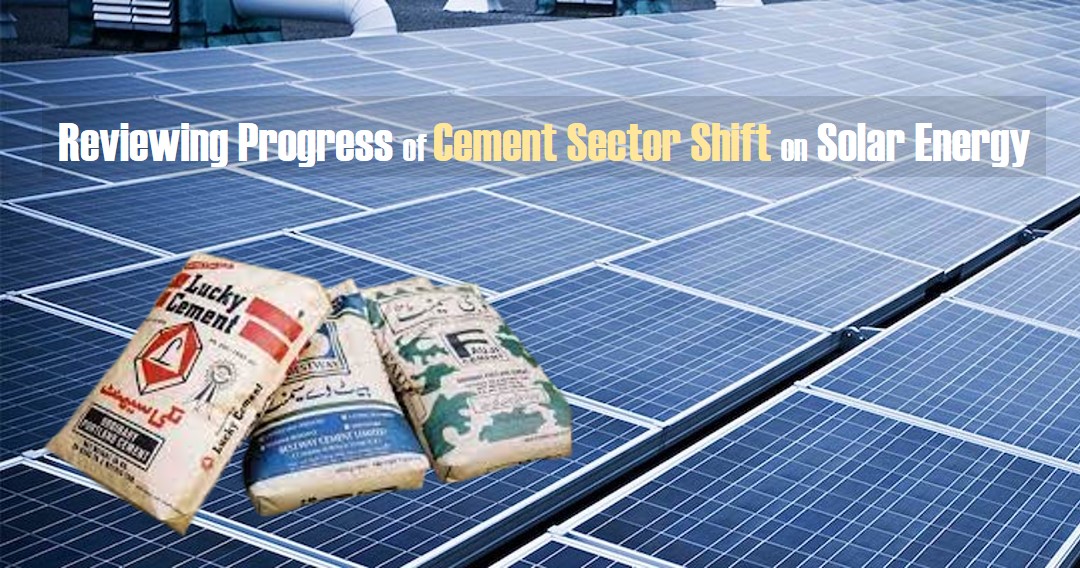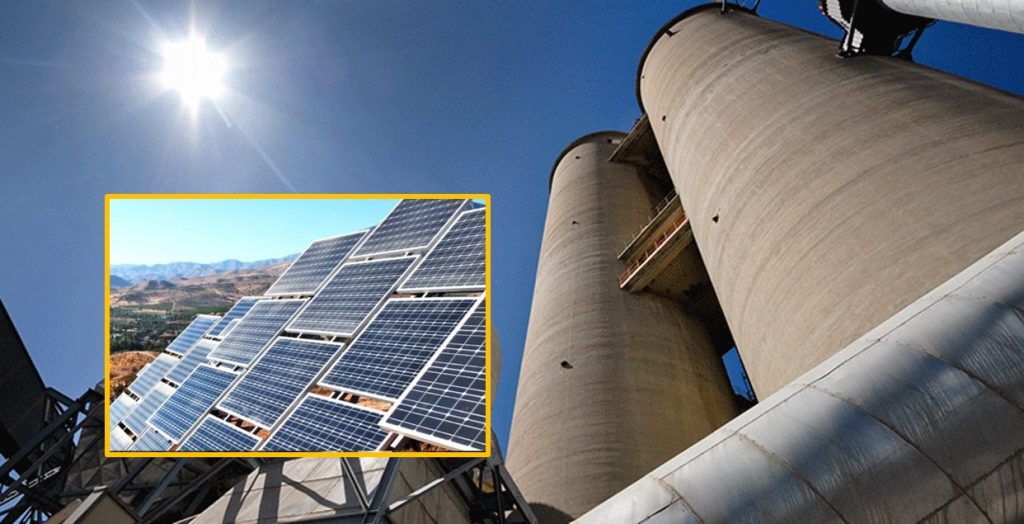Cement industry is regarded as the largest contributor to carbon emissions and responsible for the one-third increase over the past decade. That demanded to evaluate the environmental sustainability of local cement industry, keeping in view the land and atmospheric degradation in Pakistan. A year ago, infocus wrote about how cement manufacturers in Pakistan were shifting towards solar energy plants to decarbonize parts of cement production process. It is significant to review, what progress has happened so far in this regard and how many companies have incorporated solar technology in their production units.
Cement Sector Shifts on Solar Energy
Cement is indeed a prominent construction material and vital for its economic development in Pakistan. The Cement Sector of Pakistan is composed of 19 companies of which 16 companies and 24 plants are operational. The country’s infrastructural and social developments including sectors of housing, real estate, communication and public development projects directly rely on the availability of cement sector.
In 2009, the State Bank of Pakistan announced a scheme for financing power plants using renewable energy, with a view to promote renewable energy projects in the country. The objective of the scheme was to lend support in addressing the challenges of energy shortage and climate change. Several sites throughout the country’s sun-belt could meet the prerequisite for solar assisted cement plants. That’s why many cement manufacturers decided to explore environment friendly renewable energy solutions and also informed the Pakistan Stock Exchange in 2022 about their plans and commissioning of solar plants.
In a year, following cement units have transferred their capacities on solar technology.
Lucky Cement
In December 2022, Lucky Cement successfully switched on its 34 megawatts (MW) captive solar power plant at its manufacturing site in Khyber Pakhtunkhwa (KPK), reducing its energy cost significantly and helping cut the country’s energy import bill as well. “We are pleased to inform that the installation of the 34 MW captive solar power plant, at our manufacturing site at Pezu, KPK, has been completed within the planned project timelines,” Company said in a notification to the Pakistan Stock Exchange.
The solar power plant has been successfully commissioned and is fully operational with effect from December 29, 2022. The 34 MW solar PV project is expected to produce approximately 48 GWh (Gigawatt hours) annually. “The output energy will be used on-site resulting in substantial savings for the company in cost of energy and will also cut around 29,569 tons of CO2 equivalent emissions annually,” according to the company’s Annual Report for 2022. It also states the switch will improve the reliability of the power system by “shutting down 20 MW of fossil fuel generation during the daytime whilst keeping the critical spinning reserve intact. Storage builds flexibility into the system, and allows a quick response in case of power faults.”
DG Khan Cement
DG Khan Cement Company Limited (DGKC) has successfully installed a 7MW on-grid solar power plant at its site in Khairpur in March 2023. The company said the on-grid power plant has successfully started power generation. “It will decrease our power cost mix, reduce carbon foot prints and curtail reliance on expensive fossil fuels,” the cement maker said.
DGKC is one of the largest cement manufacturers in Pakistan with a production capacity of 22,400 tons per day (6.72 million tons/annum). It has four cement plants, two in Dera Ghazi Khan, one in Khairpur district Chakwal and one at Hub Lasbela district (Balochistan). Last year in June, DGKC had signed an agreement and established Letter of Credit (LC) for the supply and installation of the plant with Reon Energy Limited. The cement manufacturer said the plant was to be financed 100% through the State Bank of Pakistan Financing Scheme for Renewable Energy.
Fauji Cement
In quest to obtain self-sufficiency in power generation and with the objective of using clean and green energy, Fauji Cement inaugurated at its Wah cement factory plant in December 2022 with new 8.8MW solar power plant. According to the manufacturer this will reduce 10,000t of CO2 emissions, which is equivalent to planting 15,000 trees.
The Wah cement plant will now be producing 60% of its total power needs from green energy. The solar facility was constructed by Foundation Solar Energy Ltd, the solar EPC arm of Fauji Foundation group.
By
Editorial, Infocus



